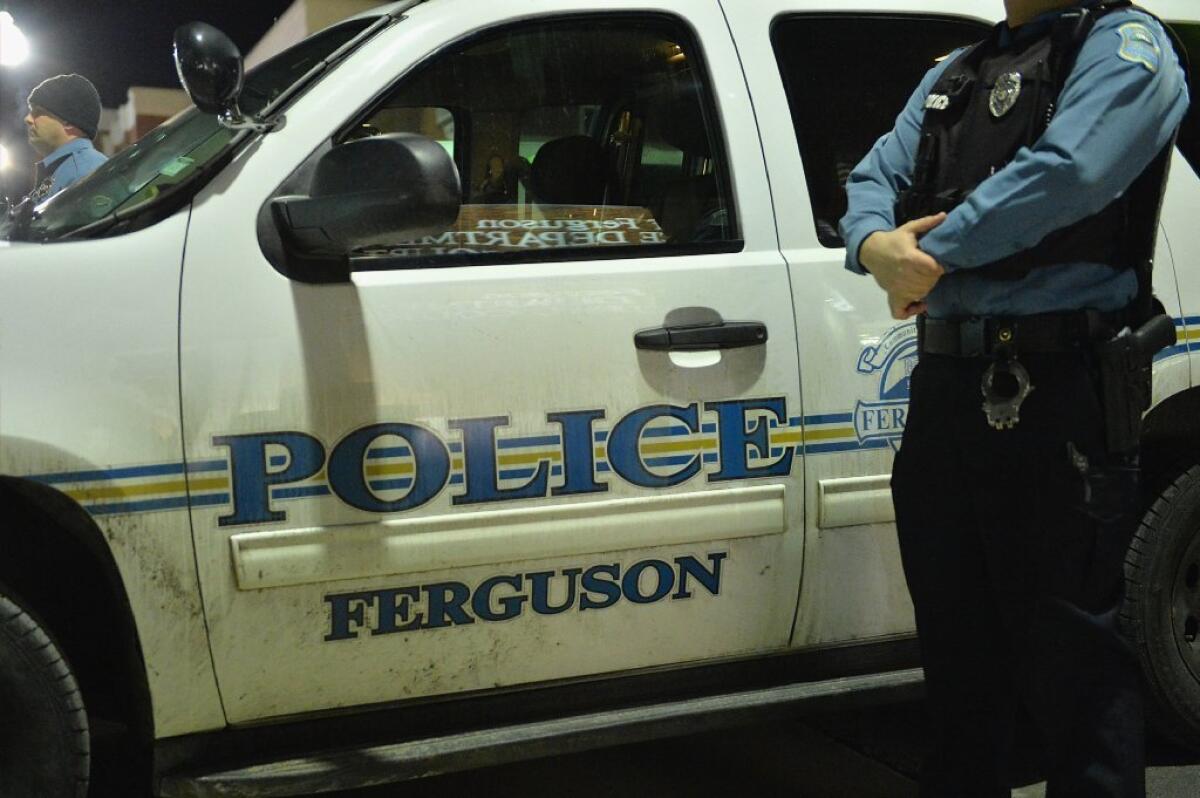Opinion: Separating case and cause in Ferguson

- Share via
The U.S. Justice Department this week released two reports growing out of its investigations following the killing of Michael Brown by police Officer Darren Wilson.
Taking a cue from Atty. Gen. Eric H. Holder Jr., most of the commentary initially focused on the department’s conclusions about the criminal justice system in Ferguson, Mo. As a Los Angeles Times editorial noted, the city “routinely violates the constitutional rights of African Americans.” That report is sobering and shocking.
But Holder also released a second report about the investigation into whether Wilson should face federal charges for violating Brown’s civil rights. In concluding that no prosecution was warranted, the Department of Justice essentially vindicates the state grand jury that declined to indict the officer. And it rejects the factual narrative that drove the fury over Brown’s killing.
After noting that Brown was not shot in the back – another early meme – the report dramatically discredits the account of the shooting that gave rise to the rallying cry “Hands up, don’t shoot.” Here’s a quotation:
“Although there are several individuals who have stated that Brown held his hands up in an unambiguous sign of surrender prior to Wilson shooting him dead, their accounts do not support a prosecution of Wilson. As detailed throughout this report, some of those accounts are inaccurate because they are inconsistent with the physical and forensic evidence; some of those accounts are materially inconsistent with that witness’s own prior statements with no explanation, credible or otherwise, as to why those accounts changed over time. Certain other witnesses who originally stated Brown had his hands up in surrender recanted their original accounts, admitting that they did not witness the shooting or parts of it, despite what they initially reported either to federal or local law enforcement or to the media.”
The two reports are a reminder that from the beginning, “Ferguson” has been both a case and a cause – not unlike the killing by George Zimmerman of Trayvon Martin. The question raised by the two Justice Department reports is how Ferguson the case and Ferguson the cause are connected.
Some would argue that they aren’t related at all: Racism may have pervaded the Ferguson criminal justice system, according to this view, but there is no evidence that Wilson would have responded to Brown any differently if he had been a large, menacing white man who had been implicated in a recent convenience-store robbery.
Another view, floated in a Los Angeles Times story, is that the institutional racism in Ferguson was a factor in the initial confrontation between Brown and Wilson. After noting that the Department of Justice found that police misused a law requiring people to walk on the sidewalk to fine and harass blacks, the story adds: “It was walking in a roadway that initiated the confrontation between Ferguson Police Officer Darren Wilson and 18-year-old Michael Brown on Aug. 9.” True, but the report on Brown’s killing says that Wilson, based on a radio call, believed that Brown had been involved in a robbery.
The third, and to me most persuasive, proposed connection between case and cause was offered by Holder when he presented the two reports. It focuses not on the killing of Brown but on public reaction to it.
After noting that the federal investigation’s conclusion about Brown’s killing contradicted “some of the initial, widely reported accounts of what transpired,” Holder added that it was nevertheless valid “to question how such a strong alternative version of events was able to take hold so swiftly, and be accepted so readily.” The answer, he suggested, was to be found in the report about policing and racism in Ferguson.
It would be a mistake to view that report as a consolation prize for residents of Ferguson who demanded that Wilson be prosecuted. It stands on its own. I’m usually impatient with people who try to deflect discussion of the particulars of a court case to the “larger issue.” But there is a larger issue in Ferguson, even if Darren Wilson was justified in using deadly force against Michael Brown.
Follow Michael McGough on Twitter @MichaelMcGough3
More to Read
Sign up for Essential California
The most important California stories and recommendations in your inbox every morning.
You may occasionally receive promotional content from the Los Angeles Times.














